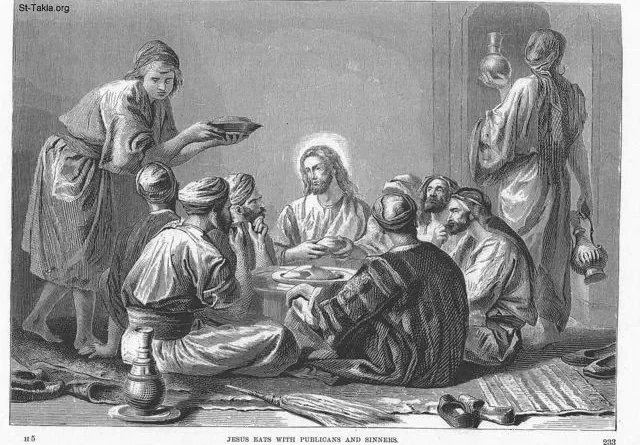Story of god honoring servant joseph – परमेश्वर द्वारा दास जोसेफ का सम्मान करने की कहानी
The story of Joseph, the slave who was honored by God, is a powerful narrative of faith, perseverance, and divine favor. It spans several chapters in the Book of Genesis (Genesis 37, 39-50). Joseph’s journey from being sold into slavery to becoming a powerful ruler in Egypt showcases God’s providence and His ability to turn adversity into blessings.
Joseph was the eleventh son of Jacob (also known as Israel) and the firstborn of Rachel, Jacob’s favored wife. Because Jacob loved Joseph more than his other sons, he gave Joseph a special coat of many colors, which caused jealousy and resentment among his brothers. Joseph also had prophetic dreams in which he saw his brothers bowing down to him, further intensifying their envy.
One day, when Joseph’s brothers were tending their flocks far from home, Jacob sent Joseph to check on them. When the brothers saw Joseph approaching, they plotted to kill him. However, Reuben, the eldest brother, convinced them not to kill Joseph but to throw him into a pit instead. Later, Judah suggested selling Joseph to a caravan of Ishmaelite traders passing by. The brothers agreed, and Joseph was sold for twenty pieces of silver and taken to Egypt as a slave. They then deceived their father, Jacob, into believing that Joseph had been killed by a wild animal.
In Egypt, Joseph was sold to Potiphar, an officer of Pharaoh and captain of the guard. Despite his circumstances, Joseph remained faithful to God, and the Lord was with him, causing him to prosper. Potiphar noticed Joseph’s success and put him in charge of his entire household. Under Joseph’s management, Potiphar’s household flourished.
However, trouble arose when Potiphar’s wife took notice of Joseph’s attractiveness and tried to seduce him. Joseph, being a man of integrity, refused her advances, saying, “How then could I do such a wicked thing and sin against God?” (Genesis 39:9). Angered by his rejection, Potiphar’s wife falsely accused Joseph of trying to assault her. As a result, Potiphar had Joseph thrown into prison.
Even in prison, God was with Joseph, and he found favor in the eyes of the prison warden. The warden put Joseph in charge of all the prisoners, and whatever Joseph did, the Lord made it succeed. While in prison, Joseph interpreted the dreams of two of Pharaoh’s servants—the cupbearer and the baker—who had been imprisoned. Joseph accurately predicted that the cupbearer would be restored to his position, while the baker would be executed. Joseph asked the cupbearer to remember him and plead his case to Pharaoh, but the cupbearer forgot about Joseph after his release.
Two years later, Pharaoh had disturbing dreams that none of his wise men could interpret. It was then that the cupbearer remembered Joseph and told Pharaoh about his ability to interpret dreams. Pharaoh summoned Joseph from prison and asked him to interpret the dreams.
With God’s guidance, Joseph explained that Pharaoh’s dreams were a warning of seven years of abundant harvests, followed by seven years of severe famine. He advised Pharaoh to appoint a wise and discerning man to oversee the storage of surplus grain during the years of abundance to prepare for the famine.
Impressed by Joseph’s wisdom, Pharaoh appointed him as the second-in-command over all of Egypt, giving him authority over the land. Joseph was given the responsibility to store grain during the years of plenty and manage the distribution during the years of famine. At just thirty years old, Joseph went from being a slave and prisoner to a ruler in Egypt.
When the famine struck, it affected not only Egypt but also the surrounding regions, including Canaan, where Joseph’s family lived. Jacob sent his sons to Egypt to buy grain. When they arrived, they did not recognize Joseph, but he recognized them. Joseph tested his brothers to see if they had changed since the time they sold him into slavery.
After several interactions, Joseph finally revealed his identity to his brothers. Overcome with emotion, he forgave them, saying, “You intended to harm me, but God intended it for good to accomplish what is now being done, the saving of many lives” (Genesis 50:20). Joseph’s brothers were astonished and humbled by his grace and mercy.
Joseph invited his entire family, including his father Jacob, to move to Egypt, where they would be provided for during the remaining years of famine. Pharaoh welcomed Joseph’s family, and they settled in the land of Goshen, where they prospered.
Joseph’s story illustrates God’s sovereignty in using difficult circumstances for a greater purpose. Despite being betrayed, enslaved, and imprisoned, Joseph remained faithful, and God turned his suffering into a blessing for many. Joseph’s willingness to forgive his brothers exemplifies the power of forgiveness and reconciliation. He chose to see God’s hand in his trials rather than harbor resentment. Joseph’s integrity and faithfulness to God, even in the face of temptation and hardship, serve as an example of unwavering trust in God’s plan.
Joseph’s story is a testimony to the fact that God honors those who remain faithful to Him, even in the most challenging circumstances. It is a powerful reminder that God’s plans are always greater than our present struggles, and He can bring good out of any situation.
Story of god honoring servant joseph – परमेश्वर द्वारा दास जोसेफ का सम्मान करने की कहानी



